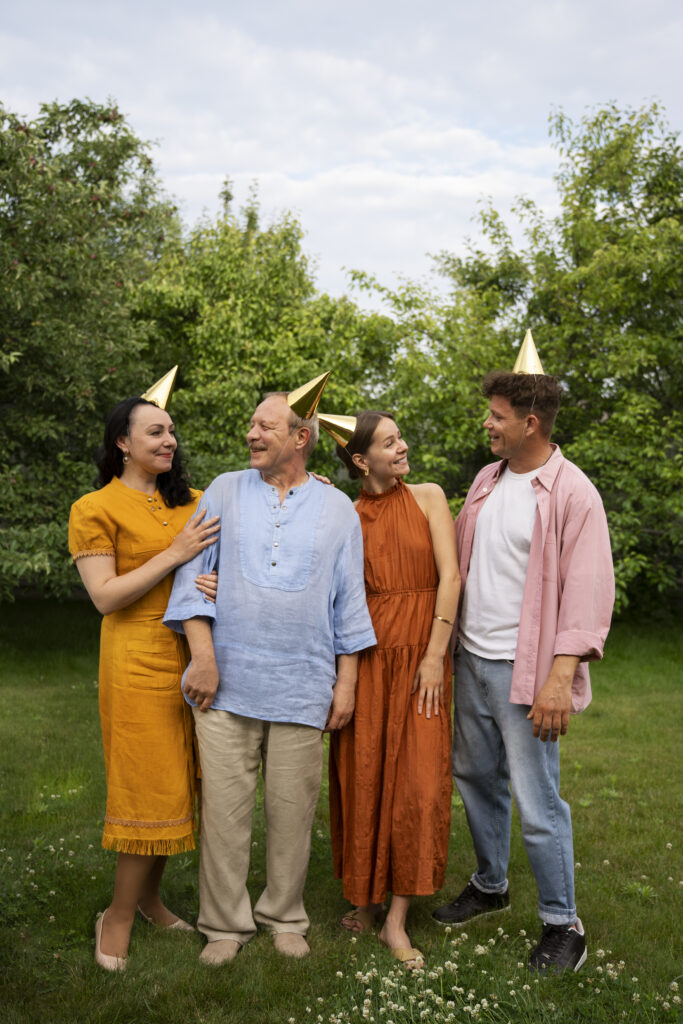Understanding Intergenerational Dating
Intergenerational dating refers to romantic relationships that involve partners from significantly different age groups. These relationships often challenge traditional societal norms regarding age and romance. The increasing visibility and acceptance of intergenerational relationships in contemporary society reflect broader cultural shifts. Factors such as changing social dynamics, evolving attitudes towards love, and the search for meaningful connections have contributed to this growing trend.
Culturally, the stigma surrounding relationships with substantial age gaps has diminished over the years. Earlier generations often viewed intergenerational partnerships skeptically, presuming that such relationships were driven primarily by financial motives or a desire for control. However, modern understanding highlights that love and attraction can transcend age, fostering deeper emotional connections between partners. Celebrities and public figures engaging in high-profile intergenerational relationships have further normalized this phenomenon, sparking public discussion and acceptance.
Historically, intergenerational relationships were not uncommon. In many societies, marriages often included significant age differences, typically with older men marrying younger women. These partnerships were often rooted in economic considerations rather than romantic choice. As societies evolved and gender roles shifted, the dynamics of romantic relationships transformed, leading to a more diversified understanding of love and companionship. Today, individuals may seek partners regardless of age, focusing on shared interests, compatibility, and emotional support rather than strictly adhering to societal expectations.
This transformation in perspective emphasizes the importance of emotional intelligence and personal fulfillment in relationships, irrespective of age. As social constructs around aging evolve, acceptance of intergenerational dating continues to grow, highlighting a more inclusive approach to love in all its forms. Embracing love across ages fosters meaningful connections that can offer unique perspectives and experiences in both partners’ lives.
Benefits of Dating Someone from a Different Generation
Intergenerational dating offers a wealth of benefits that can enrich the lives of both partners. One of the most significant advantages is emotional maturity, which is often more pronounced in older individuals due to their life experiences. This emotional intelligence can foster a deeper level of understanding, empathy, and communication in the relationship, allowing couples to navigate challenges more effectively. Younger partners may find a sense of stability and security that is sometimes absent in their relationships with peers, while older partners may rejuvenate their perspective on life through the enthusiasm and spontaneity brought by their younger counterparts.
Another crucial benefit of dating someone from a different generation is the wealth of diverse perspectives each partner brings to the relationship. Coming from distinct backgrounds and eras, these individuals often have unique insights that can lead to enlightening conversations. For instance, an older partner may share historical context or lessons learned from past relationships, while a younger partner may introduce fresh ideas and contemporary viewpoints that challenge traditional notions. This dynamic can encourage both individuals to grow and evolve, fostering an environment where open-mindedness and respect thrive.
Life experiences also play a pivotal role in enriching intergenerational relationships. Couples can benefit profoundly from sharing stories and lessons learned, allowing them to build a deeper bond over time. A couple might recount how their differing approaches to financial planning—shaped by varying economic climates—resulted in healthier understanding and compromise, showcasing how their diverse backgrounds contribute to strong teamwork. Many couples report that their relationships challenge societal norms and provide a refreshing take on love and companionship that defies generational stereotypes.
In summary, dating someone from a different generation brings emotional maturity, diverse perspectives, and rich life experiences that can tremendously enhance a relationship. Couples often find joy and strength in bridging the generational gap, cultivating a love that is both unique and fulfilling.
Challenges and Considerations in Intergenerational Dating
Intergenerational dating can offer a unique blend of perspectives and experiences, yet it is not without its challenges. One significant hurdle is the societal judgment that couples may face. Society often perpetuates stereotypes regarding age differences, which can lead to disapproving remarks or assumptions about the motives behind the relationship. These external pressures can create strain and may require couples to actively manage their public perceptions.
Another challenge lies in the generational gap. Differences in interests commonly arise when individuals from different age groups come together. For instance, contrasting preferences in music, entertainment, or recreational activities can sometimes create a divide. Additionally, these differences may extend to communication styles, with varying levels of comfort regarding technology use, social interactions, and emotional expression. This disparity can lead to misunderstandings if not addressed through open dialogue.
A crucial consideration in intergenerational dating involves aligning future life goals. Individuals at different stages in life often have varying priorities, such as career aspirations, family planning, and financial stability. For example, one partner may prioritize settling down and starting a family, while another might seek to focus on career advancement or travel. These divergent paths can pose challenges in long-term compatibility and satisfaction.
To navigate these complexities effectively, couples are encouraged to embrace open communication and foster mutual respect. Regular discussions about aspirations, interests, and societal perceptions can significantly enhance understanding and strengthen the relationship. Both partners should be willing to compromise and find common ground, allowing their relationship to grow in a positive direction despite the challenges posed by their age difference. By remaining open and respectful of each other’s backgrounds and perspectives, intergenerational couples can cultivate a fulfilling and enriching bond.
The Changing Perception of Age Differences in Relationships
The perspectives surrounding age differences in romantic relationships have significantly evolved over the years, a transformation influenced by various factors including societal norms, personal experiences, and media portrayals. Traditionally, relationships with substantial age gaps faced scrutiny and judgment, often characterized by stereotypes that questioned the validity of such unions. However, contemporary discussions have gradually shifted towards a more accepting stance, as individuals increasingly prioritize personal happiness and fulfillment over societal conventions.
One of the primary catalysts for this cultural shift is the heightened emphasis on individual choice and autonomy. Modern couples are more likely to make relationship decisions based on mutual connection and compatibility, rather than the constraints of age. This change has been bolstered by successful examples of intergenerational relationships celebrated in popular culture, demonstrating that love can flourish regardless of age differences. Notably, celebrity relationships often garner significant media attention, shaping public perception and normalizing age-diverse unions.
Furthermore, the evolution of digital platforms has contributed to this changing narrative by providing spaces where individuals share their experiences and perspectives. Online communities encourage open dialogue, fostering a sense of belonging among those in intergenerational relationships. This increased visibility helps challenge stereotypes, as stories of love across ages are shared and appreciated, creating a more inclusive understanding of what relationships can look like.
Looking toward the future, it is reasonable to speculate that the increased normalization of age-gap relationships will continue to reshape dating culture. As social acceptance grows, one might expect a decline in stigma attached to these unions, leading to a more diversified landscape of romantic connections. Such developments suggest the potential for further exploration of love’s complexities, reinforcing the notion that meaningful relationships can transcend age, bringing richness to the lives of those involved.

